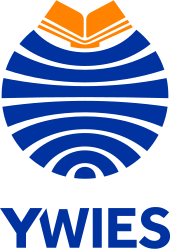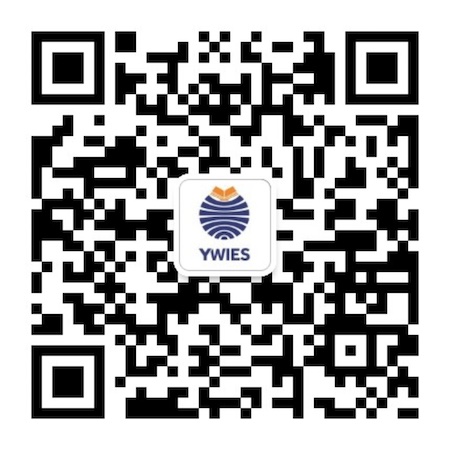Go Back
News
Wechat News
Exploration of Online Learning 1
Wechat News
23 Jul, 2020
10 : 00
In the face of the sudden outbreak of the novel coronavirus, YWIES Shanghai Lingang carried out exploration of online teaching and teacher training to keep learning during the school suspension. Within a few weeks, we adjusted the teaching plan and teaching form, prepared teaching materials and learning resources, making sure that our online teaching would be smooth. In order to arouse the students' enthusiasm of online learning, teachers of various subjects came up with novel ideas for learning projects and rich content. Starting from today, we're going to share a series of stories with you. We will listen to the stories of the teachers who became "anchors" for the first time in their lives, and also discover the first lesson that the children learnt online.
Yancia Jin First Grade Chinese Teacher
We are facing the once-in-a-century epidemic and it is also a once-in-a-century opportunity to develop life education. Using “hands” as a talking point, we taught children to know more about the people who work at the front line fighting against the CODIV-19 and safeguarding our health. We hope children understand more about this epidemic so they care more about society and other people. At the same time, we hope they will grow up after learning that there are difficult times in lives that we need to face. I asked the children to complete an extension homework after class. Through the content they learnt in class and by combining pictures and texts, they drew a picture and wrote a "hand in the epidemic", which can be a piece of news, a poem or a speech.
There is a touching story in my class. One day before class, I learnt that a child's parents are police officers. The child's parents contacted me to inform me that they could not help with their child's studies because they would not be at home for a period of time. They hoped that I would understand and thanked me for my work. I was deeply moved and immediately expressed my respect for them. It should be us, the ordinary people, who are safe, healthy and isolated at home who appreciate their work. At present, they are all away at work. They are going through the 15 days of quarantine and 15 days of work procedures. They can't go home until the epidemic is over, and their children are being taken care of by grandparents. In class, I specifically mentioned the parents of this child, and asked the child to come on stage to talk about his understanding of his parents' current work. The child was very proud and moved, while the other children were surprised. For them, the epidemic may be like a thing that is happening far away, but after knowing more about what the people around them are experiencing, they got a deeper grasp of reality.
Ms Sarah Monda Fourth Grade English and Theme Teacher
During the period of this epidemic, we asked students to discuss epidemic-related topics in English class and Theme class. In a Fourth Grade English class, students were asked to study bacteria and viruses. They were asked to record summaries of what they had learnt. They designed "wanted" posters that targeted bacteria and viruses, and investigated the measures people should take when they see these "target criminals". In a Fourth Grade Theme class, students learnt about healthy lifestyle choices, which included healthy eating and physical activity programmes, and then created sensible plans to make people aware of the importance of maintaining healthy eating habits and staying physically active.
Why did we do this? Because in the Fourth Grade, all of our units have the goal of developing independent learners. For example, teaching students how to conduct independent research and explain what they have learnt to others in an engaging manner has been the focus of both English class and Theme class this year .
I enjoy teaching online, and I have done it before in other schools. I would like to share an unexpected finding that the online teaching model has encouraged many normally shy students to speak up in class. These students are usually afraid to speak loudly in ordinary classrooms, but are willing to participate in online discussions. In addition, I have found that students tend to be more engaged and creative because they have to solve many practical technical problems in addition to regular assignments. They must decide how to write their homework, how to communicate with their classmates, and how to present themselves in online discussions. I think this is one of the benefits of online education.
There is something special about the next story from our Lower Secondary school. There is an old saying that history always repeats itself. Therefore, we also had an interesting conversation with our Secondary school History teacher Lily Zhang. In this dialogue, Ms Zhang told us a story about an epidemic event that China once faced.
Lily Zhang Secondary History Teacher
Is it true that your topic selection in History class is perfectly suitable to this unique time in China?
Ms Zhang:
Yes indeed!
In 1910, an epidemic of pneumonic plague spread through the northeastern part of China. We asked the students to compare it to the COVID-19, and to study it from the perspective of history, exploring the historical experience. We encouraged students to put forwards their own views, opinions, or suggestions as a world citizen who must face all kinds of social problems that will happen throughout Chinese society after the outbreak of the epidemic.
At this stage, the whole medical system, the government, companies, and even ordinary families are all actively involved in this anti-epidemic war and fighting against the epidemic in their own way. As students who have experienced this special period, they should take note of this unique experience and make clear that the national responsibility and social responsibility should be shouldered by everyone.
In Chinese history, the northeast plague was not an accident. We should investigate its historical causes and help students understand the background from modern Chinese history. We must remember this history that has been forgotten and honour the people who have made important contributions to Chinese history.
What spirit and experience do you expect students to gain from this course?
Ms Zhang:
Spirit:
Whether it is the plague of northeast China or the novel coronavirus, a group of Chinese people have emerged to rescue the dying and heal the wounded, fight against the virus on the front line and even die heroically. Students can see their dedication to family and country, embracing a spirit of kindness, courage, and love.
Experience:
Students are expected to review the history of the late Qing dynasty 100 years ago, to learn about the plague of northeast China at that time, and to remember the people who have changed history. Having reflected on the epidemic that plagued our motherland, they can make a summary of their own enlightenment.
As a teacher, how do you feel about teaching historical events at a time like this?
Ms Zhang:
This semester, Grade 8 students are studying the modern history of China. The learning tasks designed by the teacher not only focus on the current epidemic, but also supplement our study of modern history. On the eve of the revolution of 1911, a plague of unprecedented scale broke out in northeast China, causing a huge number of casualties. Fortunately, under the control of modern medicine and epidemic prevention measures, the plague was finally overcome. In that situation of weak national strength, the self-help movement of Chinese people deserves our attention. We found that this plague has many similarities with the novel coronavirus epidemic that is afflicting Chinese people a hundred years later. What can teenagers learn from history these days? Let us look back at the history of the northeast plague a hundred years ago, and compare it with the current epidemic.
Conclusion
Everyone at Yew Wah is actively learning. We – school, teachers, students, or even parents – all have new ideas about education. Real learning is meant to teach students according to their aptitude and local conditions, and the current pandemic has given us such a learning opportunity.









